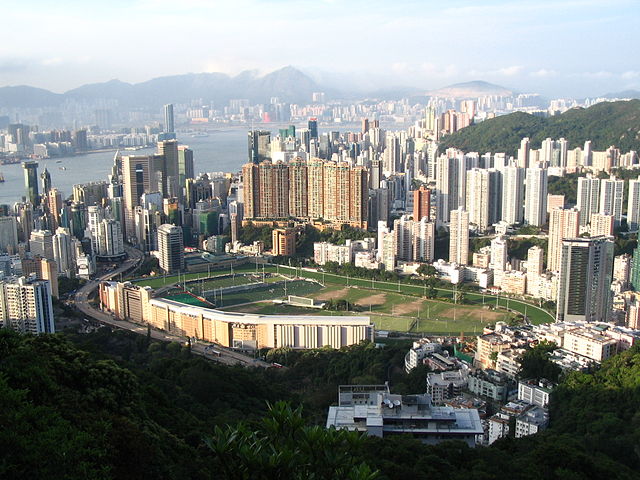The Hong Kong Jockey Club (HKJC) was founded in 1884 and is one of the oldest institutions in Hong Kong. In 1960, it was granted a royal charter and renamed The Royal Hong Kong Jockey Club (英皇御准香港賽馬會). The institution reverted to its original name in 1996 due to the handover of Hong Kong in 1997. Membership of the club is by nomination and election.
Happy Valley Racecourse
Sha Tin Racecourse
The head office in Happy Valley
An off-course betting branch of the Hong Kong Jockey Club in Man Yue Street, Hung Hom.
The culture of Hong Kong is primarily a mix of Chinese and Western influences, stemming from Lingnan Cantonese roots and later fusing with British culture due to British colonialism. As an international financial center dubbed "Asia's World City", contemporary Hong Kong has also absorbed many international influences from around the world. Moreover, Hong Kong also has indigenous people and ethnic minorities from South and Southeast Asia, whose cultures all play integral parts in modern-day Hong Kong culture. As a result, after the 1997 transfer of sovereignty to the People's Republic of China, Hong Kong has continued to develop a unique identity under the rubric of One Country, Two Systems.
A political advertisement written in Cantonese
Happy Valley apartment blocks
A Mazu temple in Shek Pai Wan; It clearly shows traits of classical Lingnan style - pale colour, rectangular structures, use of reliefs, among others.
Tsang Tai Uk in Shatin; It is also a distinctively Lingnan (Cantonese) building, being a wok yi uk.








